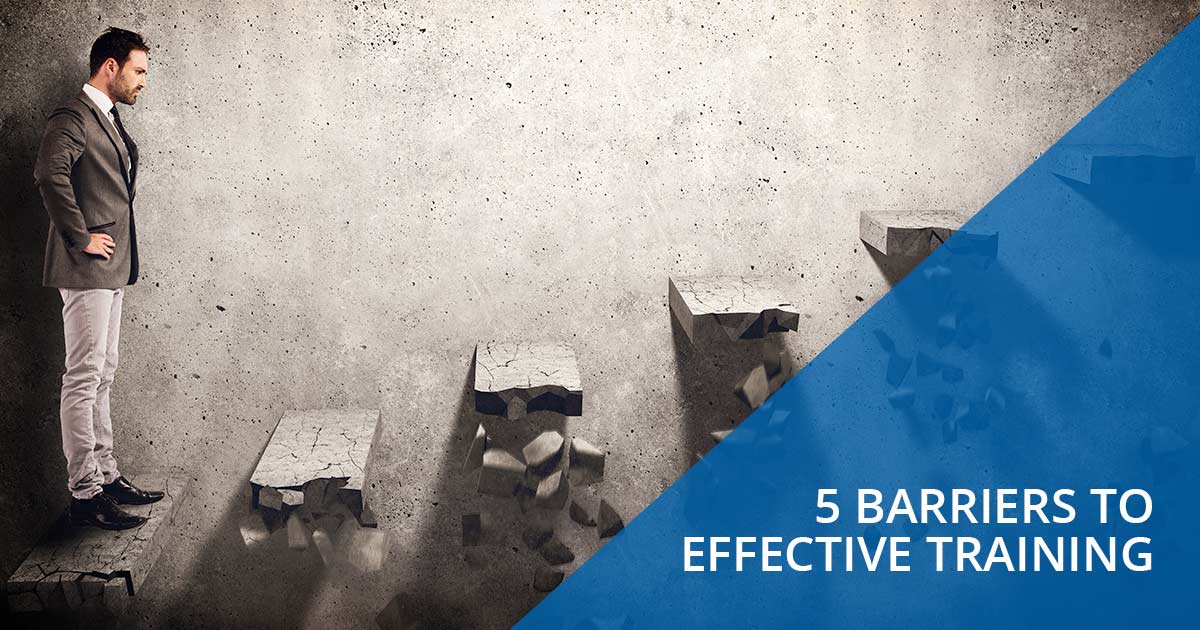
Modernize your Training Approach to Overcome these Five Crippling Obstacles
Learning programs, like everything, need to evolve to survive. New trends, technologies, and innovative ideas disrupt and remake the learning landscape, and it’s up to learning leaders to adapt. Yet many companies get comfortable with ‘the ways things have been done’ and miss opportunities to improve, adapt and excel. There’s always a place for traditional learning, but it can create a number of issues that modern learning approaches can address. We cover these in our soon-to-be-released white paper, Beyond the LMS: Modernize Your Corporate Learning Programs by Supporting Social and Informal Learning, but in the meantime, let’s go through a few:
1. Too Much Hidden Knowledge
Relying on classrooms and instructors is a great way of delivering essential information directly to learners, but it does little to centralize the vast wealth of job-critical information that can be held up in documentation, business units, departments, folders, or the minds of subject matter experts (SME). Informal learning, supported by a functional learning management system (LMS) centralizes and unlocks the potential of this hidden knowledge, making it available to new and developing learners.
2. Your SMEs Hold the Keys
Yes, SMEs are repositories of deep, valuable information that, in many cases, is exclusive to them and them alone. And while many make themselves available to disseminate information to help other employees accrue more in-depth knowledge, these people have ongoing jobs and responsibilities, and it can be challenging to find opportunities to share this wealth of information in a scalable way. Informal, modern learning approaches can use an LMS to collect and share this very specific information and make it accessible to future SMEs to ensure knowledge is transferable — an especially important capability when aging employees are factored into the equation.
3. Performance is Incongruent
Of course there will always be teams and individuals across an organization that consistently outperform others. Exceptional talent should be acknowledged and nurtured. There’s nothing wrong with that. However, when we see excellence in one area, we ought to find ways to figure out the root of exceptional performance and spread it to other individuals and teams. Traditional methods can have some role in this, but informal, modern approaches are more effective at recognizing and isolating top-performing individuals and teams; capturing the knowledge, experience and methods that have lead to their successes; and relaying this information to new learners and other existing employees to better improve productivity and efficiency organization-wide.
4. Knowledge isn’t Easily Captured
Traditional approaches can be insufficient when it comes to capturing the valuable information and insights, intelligence and experience on-the-job employees are exposed to every day. Modern learning approaches are geared towards systemizing this process. They harvest available knowledge and relay it directly to new learners in order to make the most of essential, experience-based insights and spread it throughout the organization.
5. Formal Learning is but a Piece of the Pie
Formal learning only accounts for a fraction of actual learning, the 70:20:10 model posits. If this is the case, organizations need to consider the time and resources invested in these approaches. The time committed to formal approaches needs to be weighed against the value the individuals and organizations are getting from the formal courses. This kind of assessment is particularly valuable when we consider that people learn most efficiently with hands-on training alongside peers. Knowledge transfer is best achieved not during actual onboarding processes, but at the point of actual need, a factor central to informal learning approaches.
Where is your learning program at? Are you sticking exclusively to traditional methods, or do you leverage modernized learning to make the most of your training strategy and LMS?
